November 2021

November 2021
Passionate people who overcome a great deal of adversity and stand at the top of their field. People in a high position who exert their influence for good. We call such people masters. In that sense, Chef Yeon Bok Lee is a master.
Written by
Yu Pureum
Photographed by
Studio Kenn
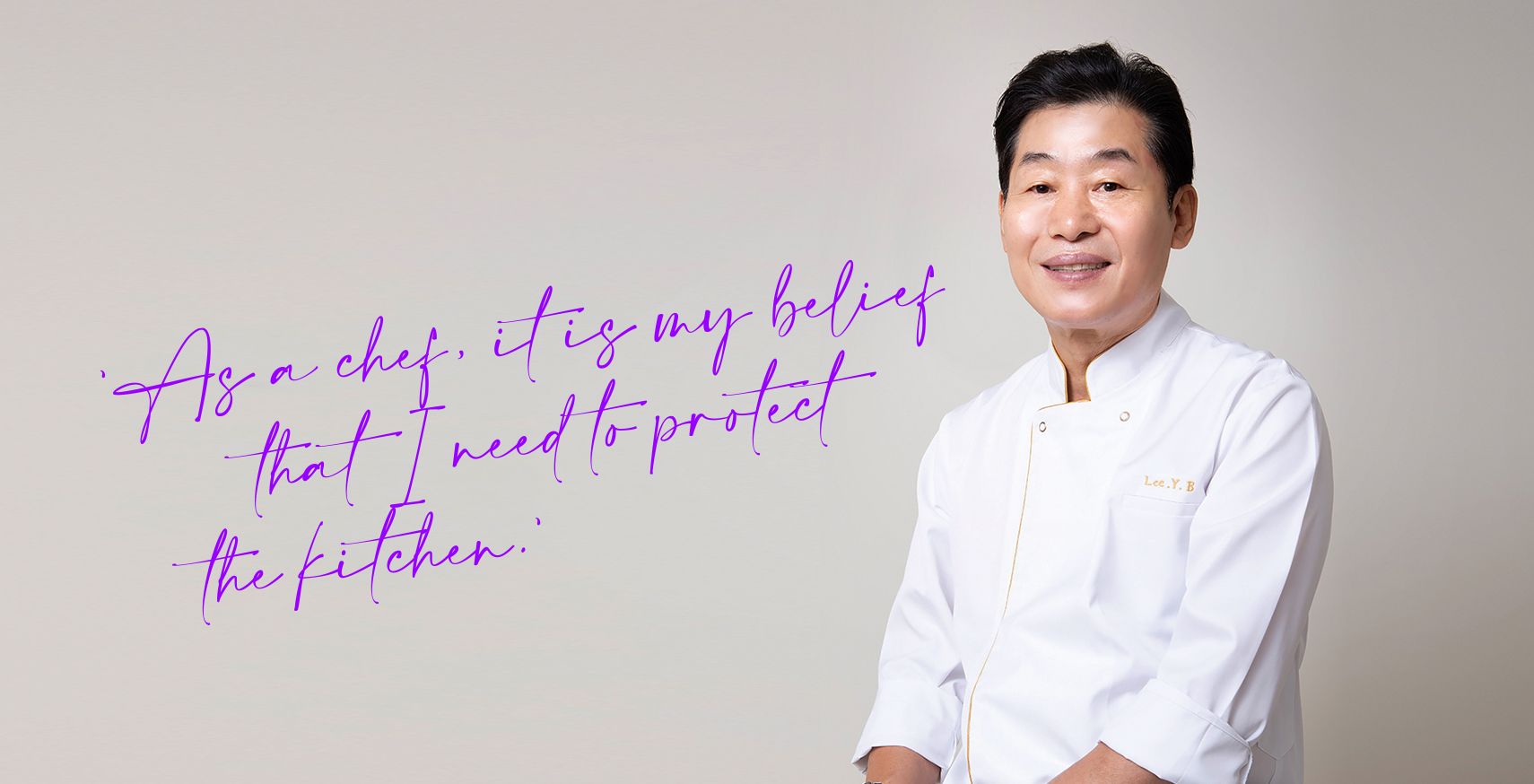 © Yeon Bok Lee
© Yeon Bok Lee
Yeon Bok Lee is a star chef. Not only in the culinary industry, but also among the public. From children to the elderly, everyone knows about Lee. Lee has captivated the public with his relaxed, gentle personality and witty speech. He readily reveals his expertise as well as the cooking skills he has accumulated over the past 50 years. Although he is currently walking on a solid road, his life has not always been so smooth.
Lee’s youth was full of turmoil. As an overseas Chinese (a person of Chinese ethnicity born outside of China), he dropped out of school in the sixth grade to reduce the burden of the expensive tuition at his private elementary school. He decided to quit school and work at a Chinese restaurant at the age of 13. At the age of 17, he became the youngest employee at the high-end Chinese restaurant Hohwadaebanjeom. Recognized early on for his culinary skills, he had risen to the position of second-in-charge of chopping in only two years. At the age of 22, he became the youngest chef to work for what was then the Republic of China’s embassy in Korea.
For all the success he experienced early in his life, he also experienced trouble at a young age. He was involved in clashes between different factions and was hurt by people in the process. “I had a very sharp and strong personality back then,” he says. “Maybe it was because of my poor childhood. When I first started cooking, my goal was just to make a lot of money. Yet as I continued to cook, my affection for cooking grew. That’s when I began to take it more seriously and really started trying.”
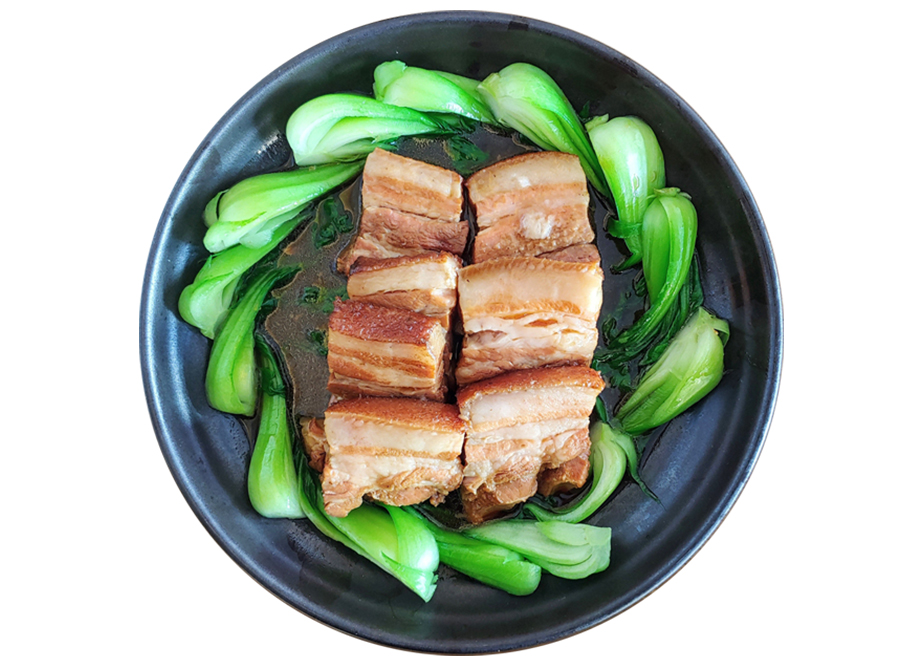 Lee became the youngest chef at the Republic of China’s embassy thanks to his braised pork belly.
Lee became the youngest chef at the Republic of China’s embassy thanks to his braised pork belly.
A huge turning point in his life came during the growth of his desire for cooking and his career: he lost his sense of smell after sinus surgery. “Instead of lamenting my loss, I sharpened my sense of taste and touch. I stopped drinking and quit smoking. My taste buds feel duller when I’m full, so I skip breakfast and eat my first meal at 3:00 PM. They’re more sensitive now, so I can control my sense of taste more precisely,” he says.
Lee said that even though it wasn’t anything serious, losing his sense of smell was a huge limitation for a chef. He also said that he no longer likes using ingredients like truffles or herbs. Scent is very important when it comes to those ingredients, so they are difficult for him to use. How did Lee overcome this hurdle? “At first, I thought my sense of smell would come back,” he said. “It was disconcerting that it hadn’t returned within two or three months. I thought about giving up cooking and finding another job, but cooking was all I knew. There was no other way but to overcome it. Now that I think about it, the fact that I was only knowledgeable about cooking seems to have actually been a blessing.”
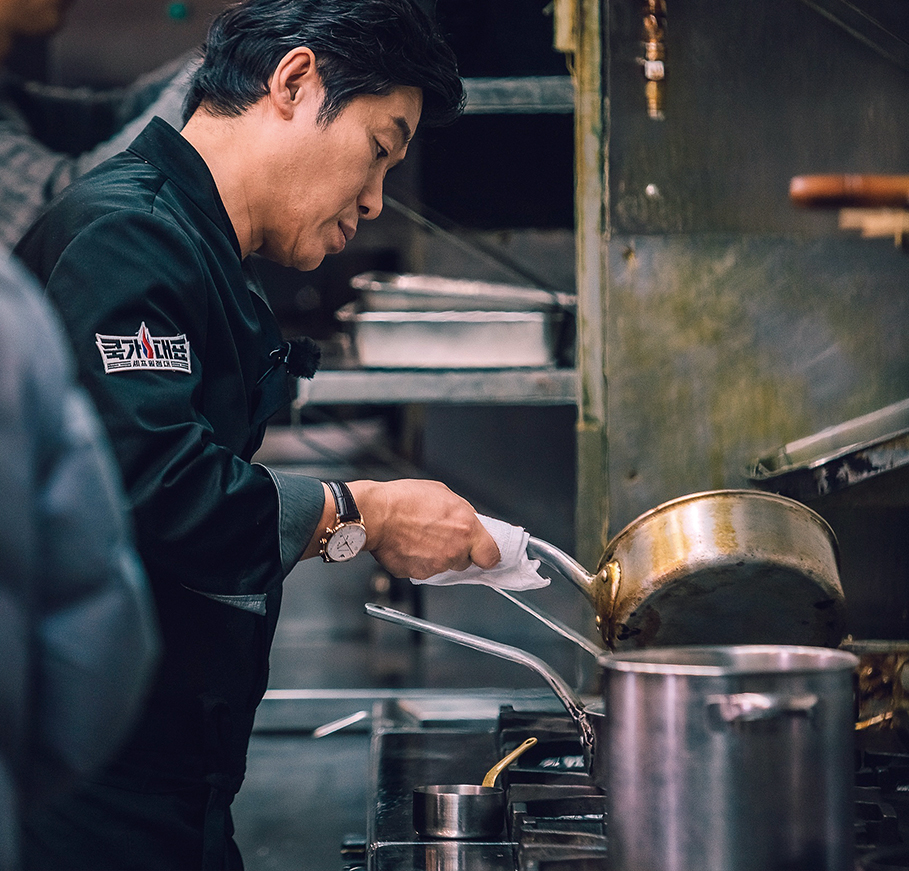 Lee appears in another TV program, “Cook Representative.” © Yeon Bok Lee
Lee appears in another TV program, “Cook Representative.” © Yeon Bok Lee
In 2015, Lee gained popularity by appearing on the television program “Chef & My Fridge.” People consider this to be the start of the era of the celebrity chef in Korea. At that time, the production team described Lee’s appearance on the program as “the oil that ignited the fire.”
“‘Chef & My Fridge’ was a turning point in my life,” he says. “I learned a lot from cooking with talented chefs. I thankfully received a lot of love.”
Lee has become a familiar face on television and is loved by viewers for his unique and relaxed demeanor and witty speech. However, he has never prioritized these appearances over cooking. “The programs are fun and enjoyable,” he says. “There’s a lot that I can gain from them. But my main job is to cook, so I try to stay in the kitchen as much as possible. As a chef, it is my belief that I need to protect the kitchen. I think it’s a courtesy to the guests who have trusted and visited me.”
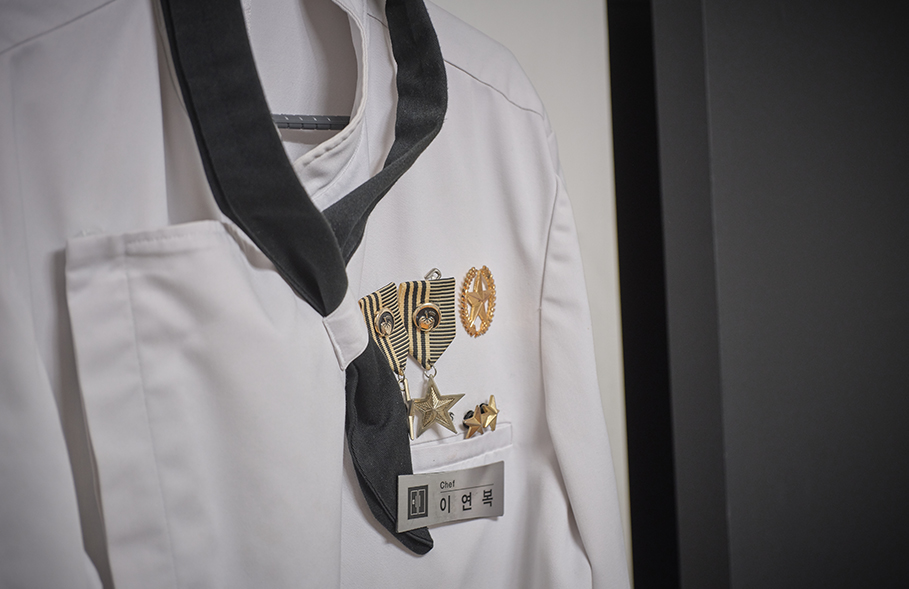 Lee answers questions during the interview.
Lee answers questions during the interview.
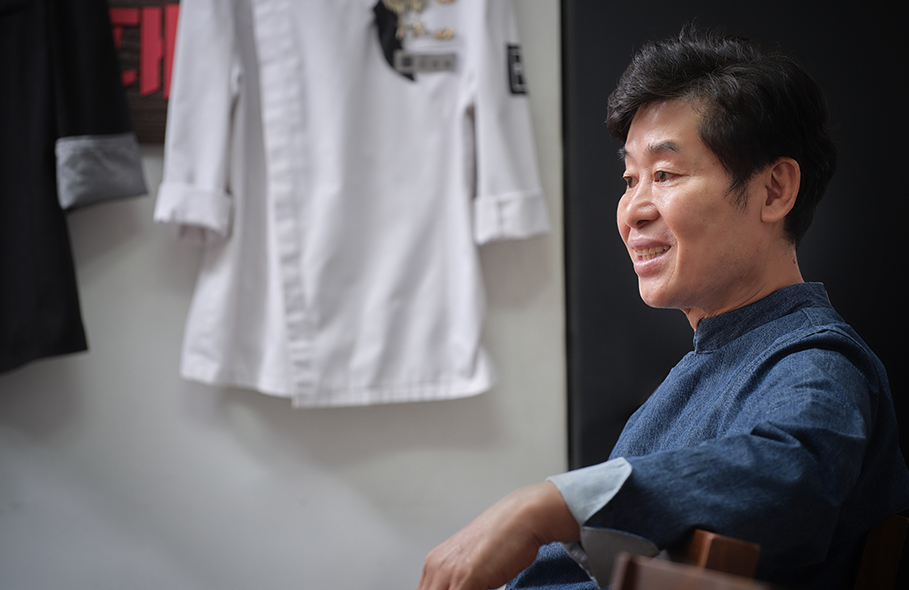 Lee has amassed the most wins in the popular TV program “Chef & My Fridge.”
Lee has amassed the most wins in the popular TV program “Chef & My Fridge.”
Lee has completely immersed himself in Chinese cuisine for 50 years. It is only natural that a person who masters his or her field has learned something. What is Lee’s philosophy of life, one that he acquired after countless days and nights of chopping, cutting and welcoming numerous guests? “When I worked in Japan, I would often go to the nearby izakaya (a casual drinking establishment) in the evening,” he says. “I talked a lot with the owner over beers. He once asked me what I thought the most important thing was when it came to making food. I told him it was important to properly match the seasonings. However, he told me that the most important thing was heart.”
“At the time, I thought he was just trying to look cool, but looking back, I realize he was right,” he adds. “When I cook with a negative mind, I have trouble concentrating because of miscellaneous thoughts. Conversely, if I cook with a positive mind, I enjoy doing so and am able to focus better on cooking. As the days go by, I think mindset is really important.”
As he enters his twilight years, Lee has started to embrace the concept of “sharing.” He is teaching students the know-how, recipes, and attitude he acquired while immersing himself in Chinese cuisine throughout his life. He makes time to work as the ambassador for Community Chest of Korea and We Start. He also continues to volunteer and donate, such as donating money to the victims of floods and the Gangwon-do Province forest fires. What motivated him to share? “When I was really struggling, I really wanted someone to help me,” he said. “When I really needed help, there was no one around. I think about that a lot now that I have money. As someone who has gone through difficult times, I really want to help others who are struggling.”
He is particularly fond of animal conservation. “People underestimate animals because they are smaller than humans and cannot speak, but their lives are also precious,” he says. “I am actively using the fame I gained from appearing on television to help protect animals. It’s difficult to actually volunteer right now because of COVID-19, so I can only donate food, but once the pandemic is over, I will volunteer often with like-minded people at a shelter for abandoned dogs.”
What does Lee’s future look like? “I want to focus on culinary research and let the public know the various charms of Chinese cuisine until I retire,” he says. “After that, I want to spend my older years running a shelter for abandoned dogs with my wife. Wouldn’t it be nice to give a stray cat a place to rest or take the time to walk a dog in the morning and evening?”
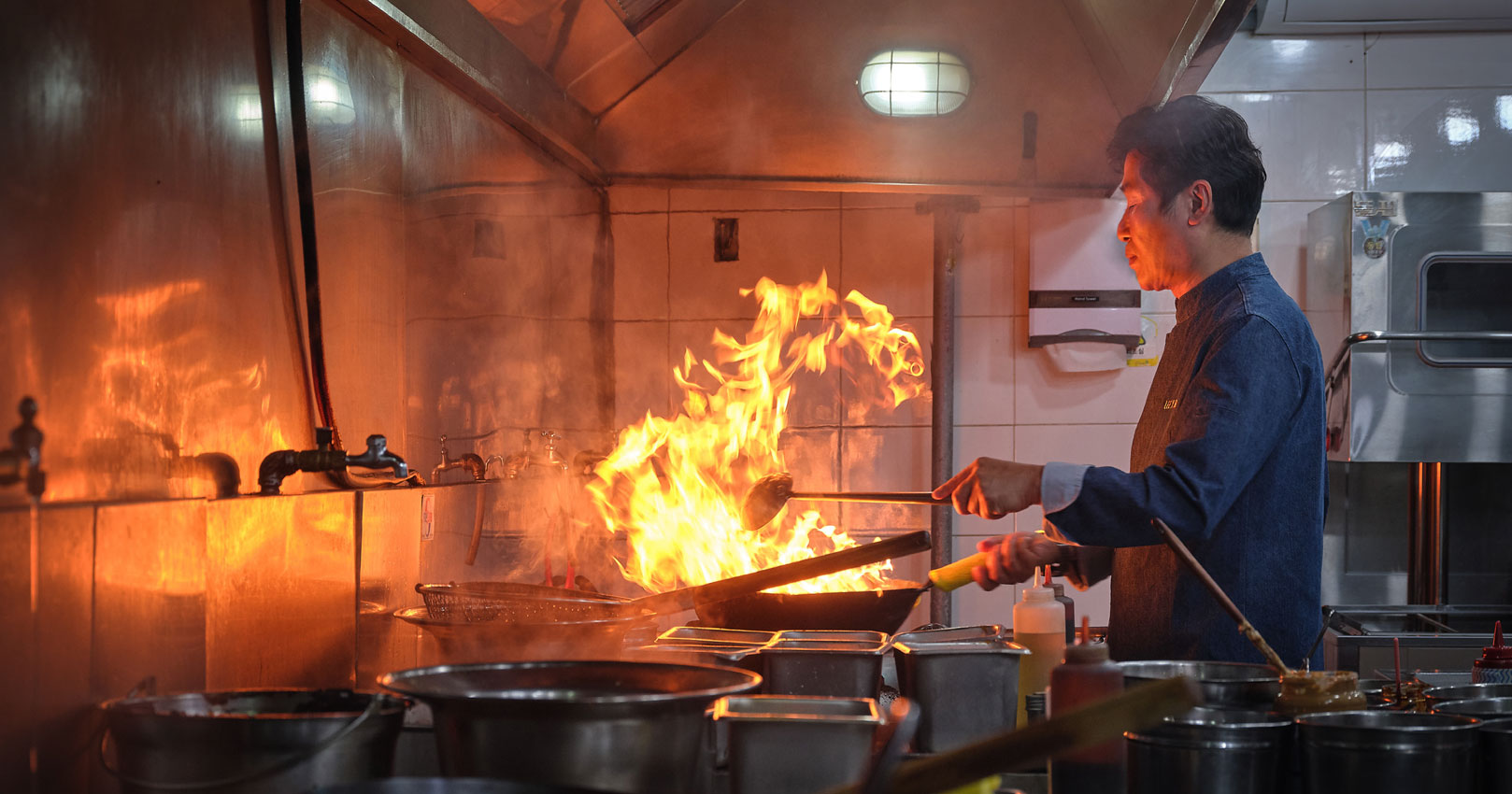 Lee cooks at his restaurant MOKRAN.
Lee cooks at his restaurant MOKRAN.